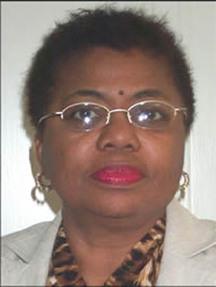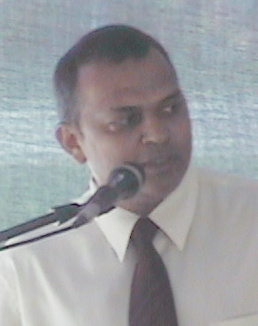— CARICOM Deputy Secretary-General Applewhaite
Deputy Secretary-General of the Caribbean Community (CARICOM) Lolita Applewhaite says sport must be one of the critical tools used to boost economic activity in the region.
Applewhaite made the remarks in her address at the opening ceremony of the 17th Special Meeting of the Council for Human and Social Development with a focus on sport held at the CARICOM Secretariat.

“The business of sport must be pursued vigorously, and this must be done with a serious dialogue among stakeholders -governments, the private sector, sport organisations, academia and the sportsmen and women,” she opined.
She said that sport must be developed and treated as part of the tradable sector and be re-positioned to contribute to the sustainable livelihood of people in the Region.
She informed that this was the thinking that led Caricom Heads of Government at their May 2011 Retreat in Guyana, to identify sports tourism as one of the priority areas for further emphasis in the development of the Community.
Ministers of Sports and other key stakeholders participated at the two-day meeting where discussions centred on issues related to sport and sport development in the Caribbean. This Special Meeting of COHSOD is addressing among other agenda items, the inclusion of persons of all ages with disabilities; the strengthening of physical education in schools and the inclusion of the elderly and persons with disabilities in physical activities.
Reports indicate that over the past 10 years the population of senior citizens has increased dramatically with more than seven per cent over the age of 60. Applewhaite noted that “it was critical to ensure that our people adopt active and healthy lifestyles across every stage of their life cycle.” She acknowledged further that greater emphasis must be placed on the management of senior citizens and persons with disabilities; and that provision must be made for them to become and remain healthy, functioning members of society.
The Deputy Secretary-General told the meeting that the Caribbean region had made significant strides in addressing organised physical education and sport for persons with disabilities, acknowledging that there was “much we can share with, and learn from, each other.”
In the face of overwhelming evidence that physical activity and sport can minimize and prevent lifestyle related diseases, Applewhaite emphasised that healthy lifestyles through physical activity could lessen the burden on regional economies. In concluding, she admitted that while much work had been done in the Region for the advancement of sport, there was still much more to be done to ensure that “sport is transitioned from a mere pastime to a valuable feature of our societies.”
Applewhaite’s remarks were in some ways similar to the remarks of Guyana’s Minister of Sport Dr. Frank Anthony who said that despite its many benefits, sport was still not being taken seriously in the region.

According to Dr. Anthony, not enough was being invested in sport while pointing out that extra lessons had robbed Caribbean children of play time.
He told the gathering which included other ministers of sports, Directors of Sports as well as other key stakeholders, that countries, which embraced physical activity and sport as part of their culture, had boosted their social capital and gained improvement in health and productivity; reduction in juvenile crime and delinquency rates; and reduction in medical costs.
He added that at the individual level, sports had aided in character building; cognitive performance, academic excellence, discipline and team building.
“Yet, despite these obvious benefits,” the Minister lamented, “sports in many parts of the Region is still not treated seriously, and consequently investment in sports have been lagging.”
One of the many issues subjected to intense debate at the two-day COHSOD Meeting in Georgetown, Guyana was that of strengthening physical education in schools.
According to Minister Anthony, if the values of physical fitness were not entrenched during the school years, the Region should brace itself for an obesity epidemic.
Currently, the WHO Health Statistics 2012 Report, which includes data from 194 countries, indicates that the highest obesity levels are in the region of the Americas, with 26 per cent of adults suffering from obesity and a widening margin of childhood obesity. Dr Anthony said that the illnesses and deaths caused by obesity were already taking a toll on the health care systems of the Caribbean.
His solution is that we “take bold steps in implementing a strong school-based physical education program across the region.” He also recommended that CARICOM conduct what he called an “Active People Survey” to benchmark the level of physical activity in the Region. This, he said, would also ensure that effective monitoring and evaluation was done with the programmes we implement.
Dr Anthony further called for greater synergies between regional governments and regional sporting bodies.
“In the age of transparency, democracy and accountability, we must insist that these bodies have good governance structures that represent the ethos of the Caribbean people,” the Minister said.
He made a case for the development of allied industries to increase economic benefits from sports.
Minister Anthony thought it was a good idea to create a regional mechanism that enabled the Caribbean to bid collectively to host major sporting competitions: “This approach will make it affordable for the region rather than a burden for a single Member State,” he explained.
He concluded by advocating for a strong mechanism to facilitate the manufacturing of sports equipment and clothing that he said would foster job creation within the Region.





